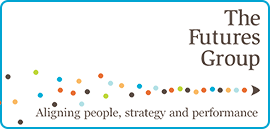By Wouter Aghina, Christopher Handscomb, Jesper Ludolph, Dave West, and Abby Yip
This is summary version of the article as everyone is busy…
What personality traits and values help agile teams bloom? Discover ways to identify these when recruiting and coaching your people.
How to Select and Develop Individuals for Successful Agile Teams is a practical guide developed through a collaboration between Scrum.org and McKinsey & Company in 2018. It explores the traits, behaviours, and values that contribute to building effective agile teams. The guide provides insights based on interviews and surveys with Scrum trainers and practitioners.
Key points include:
- Critical Traits for Agile Success:
- Handling Ambiguity: Agile environments are unpredictable, so individuals must be comfortable with uncertainty, focus on goals, and be flexible.
- Agreeableness: Ranked surprisingly high, this trait fosters empathetic listening, teamwork, and the ability to reconcile differences. It’s crucial for both product owners and team members.
- Extroversion and Introversion: While extroverts tend to handle external communication well, introverts can excel in leading self-motivated teams due to their listening and empathy skills.
- Emotional Stability (Low Neuroticism): High levels of neuroticism are detrimental to agile environments, as they require calm and resilience under stress.
- Work Values for Agile Teams:
- Pride in the Product: Agile teams prioritize delivering a valuable outcome over rigidly following processes.
- Customer-Centricity: Successful agile teams learn and adapt with their customers, ensuring their needs are met.
- Self-Direction: Individuals should be self-motivated, capable of working autonomously, and comfortable with minimal guidance.
- Openness to Change: A mindset that embraces innovation and adaptability is essential for thriving in agile settings.
- Avoiding Conservation: People who cling to tradition and resist change may struggle in agile environments, which require flexibility and a willingness to break rules if necessary.
- Development and Recruitment Tips:
- The guide provides actionable suggestions for recruiting and developing agile team members by assessing their ability to handle ambiguity, engage in teamwork, maintain customer focus, and take pride in their work.
- Specific interview questions and assessment methods are provided to evaluate these traits and values.
In conclusion, the document highlights that successful agile teams are not just composed of technically proficient individuals but of people with the right personality traits, behaviours, and values. These can be innate or developed through coaching and mentorship.




